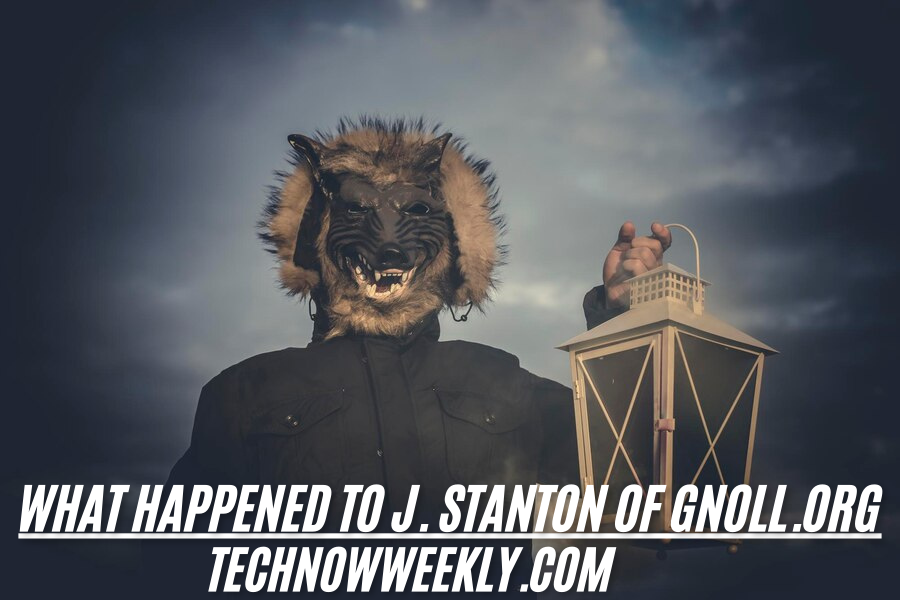Introduction
J. Stanton, the enigmatic author behind Gnoll.org, carved a unique niche in the online world of health, nutrition, and human behavior. Known for his sharp insights, well-researched articles, and a no-nonsense approach to tackling complex topics, Stanton became a respected figure in the paleo and ancestral health community. Despite his significant contributions, he seemingly disappeared from the digital landscape, leaving many of his followers wondering, “What happened to J. Stanton of Gnoll.org?” This article delves into his work, impact, and the mystery surrounding his absence.
The Rise of what happened to j. stanton of gnoll.org
Gnoll.org began as a platform for Stanton to share his thoughts on various topics, including nutrition, anthropology, and psychology. He approached these subjects with a unique blend of scientific rigor and philosophical inquiry. His writing style, marked by clarity and wit, appealed to readers who sought actionable advice grounded in evidence-based research.
One of Stanton’s most notable contributions was his book, “The Gnoll Credo.” This philosophical novel explored human nature and society through the lens of a fictional carnivorous tribe, the Gnolls. While it wasn’t a conventional self-help or nutrition book, it resonated deeply with readers who appreciated its thought-provoking insights into humanity’s primal instincts and modern challenges.
Core Themes of what happened to j. stanton of gnoll.org
- Ancestral Health: Stanton was a strong advocate for ancestral health principles, emphasizing the importance of eating whole, nutrient-dense foods and avoiding modern processed diets. He championed the paleo diet and its variations, arguing that they align better with human evolutionary biology.
- Behavioral Psychology: Beyond diet, Stanton explored the psychological aspects of human behavior. He examined why people make the choices they do, particularly when it comes to food and lifestyle habits. His articles often delved into the “why” behind cravings, addiction, and motivation.
- Philosophy and Ethics: Stanton’s writings often ventured into philosophical territory, questioning societal norms and encouraging readers to think critically about their lives. He didn’t shy away from controversial topics, which made his work both compelling and polarizing.
- Community Engagement: Stanton’s blog was more than a one-way communication channel. He actively engaged with his readers, responding to comments and fostering discussions that enriched the content on Gnoll.org.
Keep reading: psg 2001 third kit
The Impact of what happened to j. stanton of gnoll.org
J. Stanton’s influence extended beyond the paleo community. His ideas inspired individuals to rethink their dietary and lifestyle choices. Many readers credit him with helping them achieve better health and a deeper understanding of human behavior.
His articles, such as “Why Snack Food is Addictive” and “Eat Like a Predator, Not Like Prey,” became widely shared resources in the health and wellness community. These pieces broke down complex topics into digestible, actionable advice, earning him a loyal following.
Stanton also made appearances at various conferences and podcasts, where his articulate presentations further solidified his reputation as a thought leader. He was not just a writer but a public intellectual who could bridge the gap between science and everyday life.
The Sudden Silence
Despite his growing influence, Stanton’s online presence began to wane in the mid-2010s. His blog posts became infrequent, and his interactions with the community diminished. By 2017, Gnoll.org had largely gone dormant, leaving fans puzzled and concerned.
Speculations About His Disappearance
- Burnout: Maintaining a high level of intellectual output and engaging with a demanding audience can take a toll. It’s possible that Stanton experienced burnout and needed a break from the intense work of writing and community engagement.
- Personal Reasons: Like anyone, Stanton may have faced personal challenges or changes in his life that required him to step away from his public persona. Health issues, family commitments, or other private matters could have influenced his decision.
- Shift in Priorities: Some speculate that Stanton may have decided to focus on other projects or career paths. He was known to have a wide range of interests, and it’s possible that his attention shifted to pursuits outside the public eye.
- Privacy Concerns: As a vocal advocate for critical thinking and questioning societal norms, Stanton may have chosen to retreat from the public sphere to avoid undue scrutiny or maintain his privacy.
The Legacy of what happened to j. stanton of gnoll.org
Although Gnoll.org is no longer active, Stanton’s work continues to inspire and educate. His writings remain accessible online, and they’re frequently cited in discussions about nutrition, psychology, and human behavior. The enduring relevance of his ideas speaks to the depth and foresight of his work.
Lessons from Stanton’s Approach
- Critical Thinking: Stanton’s emphasis on questioning assumptions and seeking evidence-based answers is a valuable lesson for anyone navigating the overwhelming amount of information in today’s world.
- Holistic Health: His integrated approach to health—combining diet, psychology, and philosophy—remains a model for addressing complex issues in a comprehensive way.
- Authenticity: Stanton’s willingness to tackle controversial topics and challenge conventional wisdom demonstrated the importance of authenticity and courage in public discourse.
Conclusion
The question “what happened to j. stanton of gnoll.org?” remains unanswered, and perhaps that’s fitting for someone who valued critical thinking and personal exploration. While his absence is felt, his legacy endures through his writings and the lives he influenced.
J. Stanton’s work reminds us of the importance of understanding our evolutionary heritage, questioning societal norms, and striving for authentic living. Whether he’ll return to the public sphere remains uncertain, but his contributions to the fields of health, psychology, and philosophy continue to resonate with those who seek deeper truths about the human condition.










